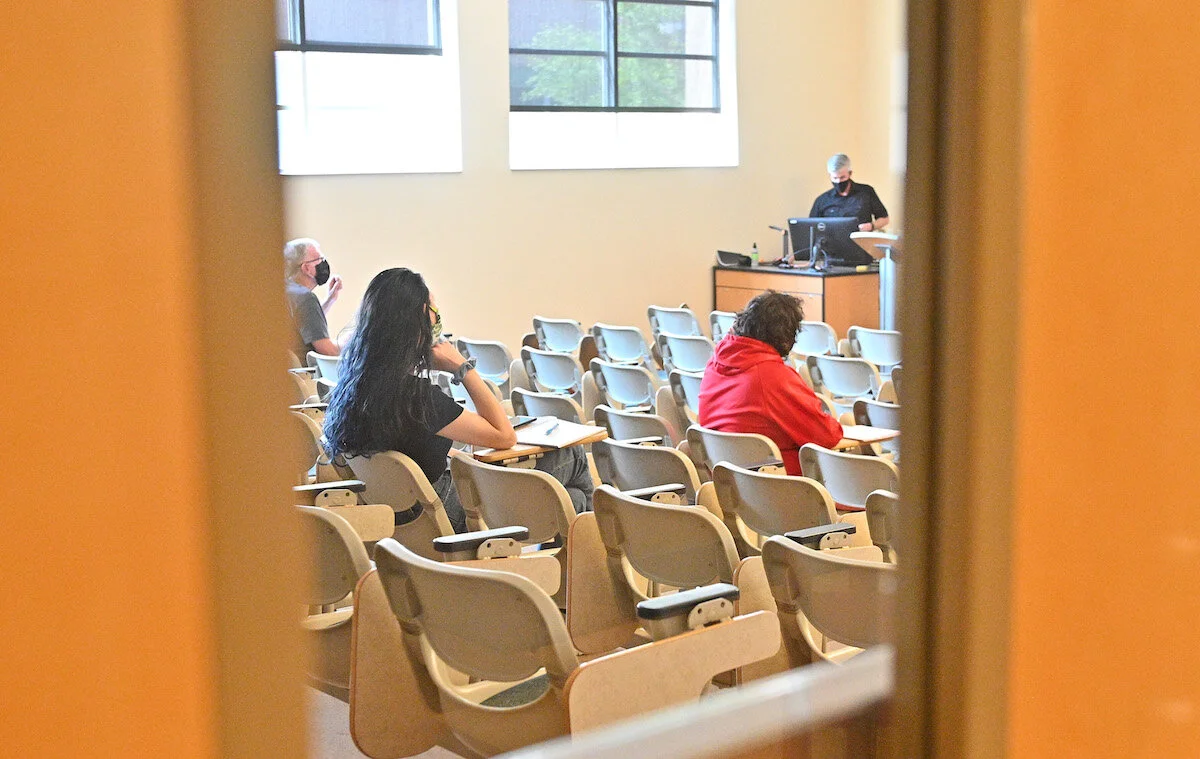
Commentary
America’s collective national body is suffering from a chronic case of China anxiety. Nearly anything with the word “Chinese” in front of it now triggers a fear response in our political system, muddling our ability to properly gauge and contextualize threats. This has led the U.S. government and American politicians to pursue policies grounded in repression and exclusion, mirroring the authoritarian system that they seek to combat.
Chinese social media has been abuzz with the disturbing story of a Chinese woman, referred to by the pseudonym “Meng Fei,” who was pursuing a Ph.D. in America. When traveling back to the U.S. to complete her studies, Meng was detained in a “little dark room” at Dulles International Airport in Washington D.C. for over eight hours, then left in solitary confinement for another 12 hours. She was unable to speak to family or friends during this time. She was then sent back to Beijing — forced to pay for her $3,700 ticket on the spot — and has since been banned from entering the United States for five years.
At a time of heightened competition with Beijing, our education system is not generating enough American citizens with Chinese language ability, meaningful lived experiences in China and deep area knowledge. And despite the ever-present refrain in Congress about the China threat, the U.S. government is actively disinvesting in China studies. The result is a serious and overlooked knowledge asymmetry that gives China — where fluency in English and U.S. culture is common — the upper hand in understanding its strategic rival.
The A4 Revolution that erupted in China in the past week is not really a revolution at all, not yet at least. The term revolution implies a sustained movement aimed at overthrowing the Chinese Communist Party. At this stage, the A4 Revolution—named after the size of the printer paper held up at vigils throughout the country—is a series of scattered, spontaneous protests against the brutality and absurdity of “dynamic zero-COVID” lockdowns and quarantines. The blank sheets say nothing and everything at the same time. These protests do not need to topple the regime to have long-term consequences.
Hu’s feeble exit from the stage is a sad symbol of the current trajectory of Chinese politics. Hu, and his allies and protégés, represent a more technocratic, moderate arm of the party—one decidedly less repressive, and more open to the outside world. Xi and his camp have been gaining momentum for a decade but at least had to share some power with Hu’s faction. This arrangement has been put to rest. In its place, China has a single dominant leader surrounded solely by people who enable him, not restrain him.
The coming academic year presents unique challenges for university instructors teaching content related to China. The shift to online education, the souring of U.S.-China relations, and new national security legislation coming from Beijing have brought new sensitivities and new risks to our classrooms.
In confronting the challenges posed by a rising China, U.S. policy makers must remember that the power of the American scientific enterprise lies not simply in the number of citations or patents it generates, but in the number of bright people from every country in the world who want to come here to do research—because of how we conduct science, speak about politics, and provide opportunity regardless of a person’s nation of origin.
A democratic revolution is unlikely to break out anytime soon, but modern Chinese history shows the problems that arise when a single leader becomes too powerful. In the words of the whistle-blower, the late Chinese doctor Li Wenliang, “a healthy society should not have just one voice.”
Through a combination of market coercion and intimidation, the Chinese Communist Party is trying to constrain how people in the United States and other Western democracies talk about China. This encroachment needs a measured response—what we might call freedom-of-speech operations, or FOSOPs for short. American universities can take the lead. They should routinely hold events on the fate of Taiwan, the pro-democracy protests in Hong Kong, the repression of Uighur Muslims in Xinjiang, and other topics known to be sensitive to the Chinese government.
This week, more than 3,000 deputies in China’s National People’s Congress are meeting in Beijing. The NPC is the legislative body of the Chinese government — and the largest parliament in the world. The full NPC meets just once a year in March, usually for a period of about two weeks. NPC deputies serve five-year terms, and the newly “elected” group (the 13th NPC) will take office this year. Here are three things to know about this session.
Talks and Presentations
“Charting the Ideological Spectrum and Public Opinion in China.” February 24, 2022 Asia Society.
“Xi for Life? What Does it Mean for China and the World”, July 23, 2018. Talks At Google.
“Repression in the China Field.” October 24, 2018. National Committee on U.S.-China Relations.









